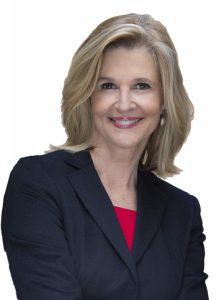Waiting for Dorian
September 3, 2019By Kathleen Parker
For the Eastern Seaboard, Dorian has become the Godot of hurricanes.
Barely moving after hovering over the Bahamas for what seemed an eternity, the former Category 5 storm has occupied weather watchers and coastal observers for several days now. It has potentially forever altered the topography and shape of some Bahamian islands, killing at least five people. In the U.S., Labor Day vacationers to coastal communities from Florida to North Carolina spent the holiday weekend boarding up and moving inland.
But, still, like the two tramps in Samuel Beckett’s play “Waiting for Godot,” we wait, and wait, and wait, and wait.
I left Pawleys Island Monday after South Carolina Gov. Henry McMaster issued a mandatory evacuation of several coastal counties, though mostly because I had other reasons to head toward higher ground. Most people who have lived through multiple hurricanes tend to wait a bit to see how the meteorologists’ models hold up. Dorian’s, alas, have been a mess.
Admittedly, I’ve kept the television set on the Weather Channel for the latest updates, so I’ve been somewhat over-informed of developments that have varied little over the course of several days. Along my section of coast between Charleston and Myrtle Beach, the weekend weather was mild and sunny as tourists left and many locals dug in. The seemingly premature, pre-emptive evacuations had many with whom I spoke scratching their heads.
Members of my extended family in Charleston were planning to stay in place. Battening down the hatches and weathering hurricanes is a point of pride that seems to have become part of the city’s DNA. Hurricane Hugo in 1989 was the truest test of such confidence. My brother-in-law, who holed up for Hugo, reported watching a large tree “hopping” down his street, which had become a swiftly moving river. He swore he and his family would seek higher ground in the future.
How soon we forget. Or, is something else in play when people become dismissive of official warnings? As of this writing, Dorian’s intentions are nowhere near clear, although it has diminished considerably and is bending northward. Also on the minds of many non-evacuees is last year’s non-event with Hurricane Florence, which failed to keep its date with calamity. On Monday, when I asked a cashier at a Litchfield, S.C., gas station if she was worried, she quickly replied “nope.”
She did all her worrying last year and she’s not allowing herself to become so agitated this time around. “I’m not doing that again,” she said. “I’m not going anywhere.” Debbie Smittle, a rental agent in Litchfield with whom I spoke Tuesday, was similarly disposed. “I’ve been here 19 years. I’m not going anywhere.”
Partly, such intransigence is surely attributable to hurricane news-fatigue. One can only sustain a sense of white-knuckle urgency for so long. The weeklong Dorian coverage, magnified by the worst-case scenario taking place in the Bahamas, has been exhausting to watch — much less endure.
Another factor here is last year’s massive preparation for Florence, which, after punishing North Carolina, essentially skipped the areas in South Carolina that had been flagged as likely disaster zones. The large-scale flooding expected in the coastal village of Georgetown, where three rivers converge, thankfully didn’t materialize.
Even if such preparations should prove for naught, what’s the alternative? Understandably, government officials want to get everyone to relative safety under the banner of better-safe-than-sorry. Given the high-density population along the coastline, sooner beats later.
But when storms such as Dorian begin losing intensity — and weather models prove (yet again) to be fallible — skepticism becomes cynicism and caution is just a blinking traffic light. By midday Tuesday, the hurricane had diminished to a Category 2 storm. Its outer rings were barely brushing West Palm Beach 100 miles away. Models were showing it heading north along the coastline, and possibly avoiding landfall.
From experience, this much we know: Nature has a will of her own. Sometimes, as with Hugo, she makes a right and cuts a swath through the central Carolinas. Other times, as in Beckett’s existential romp, Godot never shows. The paradox within the dilemma is that we humans seem to gravitate toward the tragic and the absurd, often at once. Thus, we thank God that the hurricane missed us and yet feel strangely disappointed — all that for nothing! — and then beset with shame and compassion for others less fortunate.
There but for the luck of the draw, we console ourselves — this time. Or maybe not. In “Godot,” the curtain falls without an answer.
(c) 2019, Washington Post Writers Group














